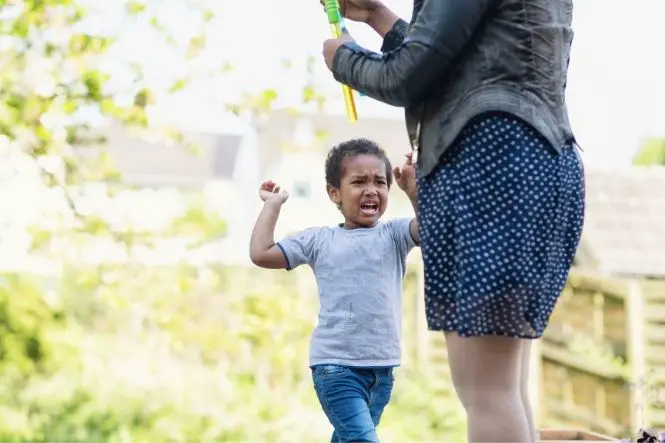All children exhibit shyness at some time or another but some children suffer from an overwhelming shyness which cripples them in social situations. This type of excessive shyness can harm their relationships with friends, leave them lonely and isolated, cause them to feel worthless and/or helpless, and leave them open to bullying and ridicule. Recognising the signs that shyness has become excessive, knowing how to help alleviate excessive shyness and understanding when excessive shyness needs professional help are all ways in which parents can better help their children.
Recognising Excessive Shyness
Shyness in children keeps them from fully and actively becoming involved in social situations. Excessive shyness can either be so labelled because it is excessively common for a given child (affecting most or all social situations) or excessively severe for that child (the degree makes it impossible for children to socialise happily). Common signs of excessive shyness in children include clinging to a parent or relative, crying at or at the thought of social situations, vomiting at the thought of socialising, an inability to hold eye contact with anyone other than close relatives and friends, very low volume of speech or an inability to speak in social situations and severe anxiety when confronted with new individuals or events. Often these symptoms lead to excessively shy children playing alone or only with very well-known individuals, to the point that other adults and teachers, including teachers and classmates, notice.
Alleviating Excessive Shyness
There are many things parents can do to help alleviate excessive shyness in children. Talking with them about how much fun it is to have friends and be social, reading books together about being shy and making friends, complimenting and praising children when they try something new and demonstrating good friendships and other relationships – are all easy ways for parents to address children’s shyness. Asking children what they are afraid of or what makes them uncomfortable in social situations and helping them to come up with strategies for facing these fears is also important. Though it may be hard, parents can also require children to confront the very situations which frighten them. This can be done in small steps, as pushing children to take each step in turn can help them ease into situations and become comfortable rather than forcing them to tackle certain situations all at once.
Excessive Shyness and Professional Help
Some children don’t respond to informal help in addressing excessive shyness, and for these children it is better to seek professional help than to let them remain frightened, frustrated and/or humiliated by their inability to join in the fun. Speak with your GP and be ready to detail your child’s symptoms, how long that has been going on, the effects it has had on your child’s and family’s social life and what you have done to try to help your child. If your GP recommends a referral to a mental health specialist don’t panic, these professionals will be able to tell you if your child is suffering from a phobia or illness and are best suited to providing an effective treatment plan for your child. It may be hard to believe your child needs this kind of specialist help, but to avoid it would only hurt your child further.
Excessive shyness can have a devastating effect on children and their families. Recognising and addressing excessive shyness and knowing when to seek professional help are all ways in which parents can help their children towards a healthier, happier life.


